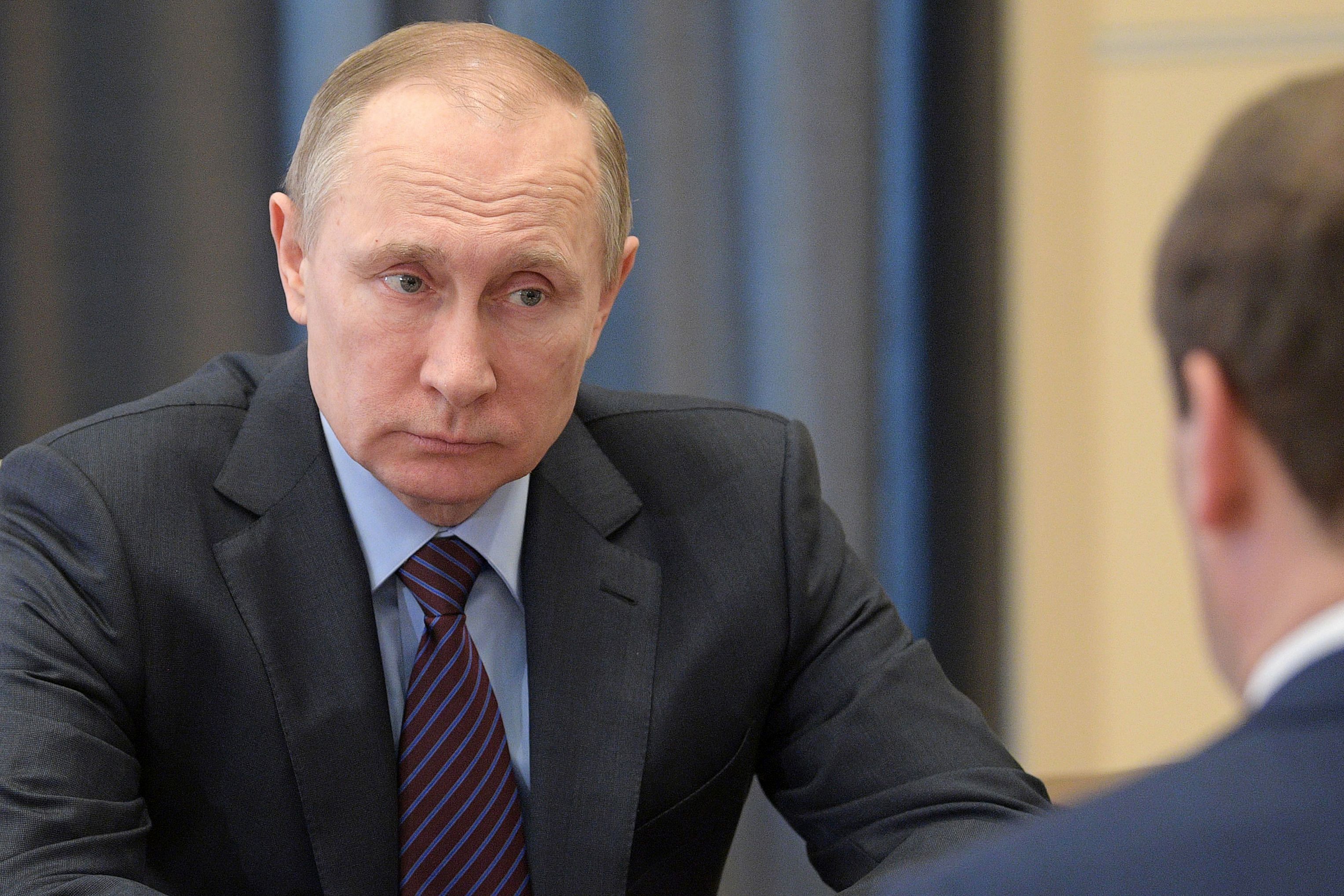During his election campaign, Mr Donald Trump frequently praised Russian President Vladimir Putin as a "very smart" leader and predicted that under a Trump leadership the United States and Russia would "work together" to tackle the world's "great and pressing problems".
Instead, relations between Washington and Moscow are souring. Mr Trump, who enjoyed an unprecedented level of popularity among ordinary Russians, has seen his image collapse. A survey released this week by leading Moscow pollster VTsIOM indicates that only 13 per cent of Russians have a positive opinion of the US President, down from 38 per cent just a month ago.
Meanwhile, Mr Trump ruefully admitted recently that he is "not getting along with Russia at all". Relations between Washington and Moscow, he added, "may be at an all-time low".
And Russia is responding in kind: A top Russian TV anchor who echoes government views has just claimed that Mr Trump is a "more dangerous" leader than North Korean ruler Kim Jong Un.
Yet it might suit American and Russian officials to play down expectations of a swift improvement in ties. And there are plenty of indications that both presidents have not given up on hopes of forging a new relationship.
In dealing with Moscow, Mr Trump has to contend with the fact that, more than at any other time since the onset of the Cold War in the late 1940s, the subject of relations with Russia is highly toxic in Washington.

The US President is largely to blame for this outcome. His refusal to shed light on his own supposed personal and financial dealings with Russia, some of his advisers' proven links with Russian financial interests, and his failure to condemn Russian intelligence services for their alleged interference during the US electoral campaign have all contributed to the impression that heeither owes Russia favours, or has something to hide about his links with Moscow.

But his domestic political opponents also have an interest in portraying Russia as a bogeyman; it is by now an article of faith among supporters of former US presidential candidate Hillary Clinton that the White House was within her grasp, and that she was deprived of victory because of Russian interference.
And events also conspired against an improvement in US-Russia relations. The chemical weapons attack on Syrian rebels, allegedly perpetrated by forces loyal to the Syrian regime supported by Russia, prompted Mr Trump to authorise a missile strike against Syrian government forces, to the fury of Mr Putin, who regards Syria as within his sphere of influence.
America's European allies also put great pressure on Washington not to make any hasty initiatives towards Russia. Initial plans for an early US-Russia summit have, therefore, been shelved.
But behind the scenes, matters are not so bleak. The White House understood early on that no big initiatives on Russia were feasible for a while; the US Congress would like nothing better than to tear these to pieces.
But the Trump administration has beefed up its expertise and credentials on Russia by appointing Dr Fiona Hill, one of the best Russian experts around, as the President's chief policy adviser.
Dr Hill is British by origin and understands European apprehensions about Russia. She is also no fan of Mr Putin; her appointment was clearly designed to give the administration public credibility and innovative ideas in dealing with Russia.
And although Secretary of State Rex Tillerson came back from his recent visit to Moscow empty-handed, he was careful not to rule out future cooperation with Russia by publicly dismissing the likelihood that US troops would become engaged in Syria, something the Kremlin fears.
It is also no secret in Washington that Mr Trump continues to believe that strategic deals with Russia are perfectly feasible, especially over the Middle East. And most of the senior members of his administration share the view that it is in Washington's interests to keep Russia away from cooperation with China, the country the White House regards as America's only real challenger.
Seen from this perspective, Russia's announcement this week that it will join Chinese navy vessels in tracking the movements of American ships around the Korean peninsula is treated by some officials in Washington as a warning of what could go wrong if links with Moscow are neglected.
The US administration's Russia policy will become clearer when Mr Trump meets Mr Putin in early July in Germany, at the Group of 20 summit of industrialised states. And until then, expect more tensions as well as more efforts in Moscow and Washington to manage both fears and expectations.
